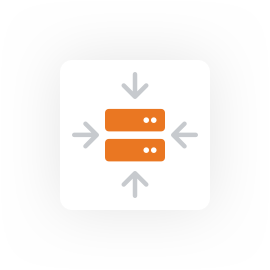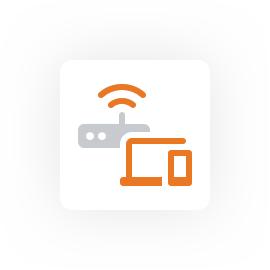Our comprehensive penetration testing service is precisely designed to identify your IT infrastructure’s potential security flaws before they’re discovered by malicious actors

Uncovering real risks
Penetration testing exploits identified vulnerabilities, showing what a hacker might do in real situations. Such actions might include accessing confidential information and executing commands within the operating system. But testing might also tell you that a vulnerability that is theoretically high risk isn’t that risky at all because of the difficulty of exploitation.
Testing your cyber-defense capability
You should be able to detect attacks and respond adequately and on time. Once you detect an intrusion, you should start investigations, discover the intruders and block them. Whether they are malicious, or experts testing the effectiveness of your protection strategy. The feedback from the test will tell you if – but more likely what – actions can be taken to improve your defense.
Maintaining trust
A cyber assault or data breach negatively affects the confidence and loyalty of your customers, suppliers and partners. However, if your company is known for its strict and systematic security reviews and penetration tests, you will reassure all your stakeholders.
Penetration Testing is a 5-step process that reveals critical insights into your IT infrastructure, processes, and people. Our experts utilize common hacker tactics to locate flaws in your network security systems. A simulated attack is launched against each identified vulnerability, allowing us to determine if a malicious actor could gain access to your network. Once completed, a final report outlining our findings and recommended remediation is provided.
STEP 1
This is the most time consuming stage which involves planning to simulate a malicious attack – the attack is designed in a way that helps to gather as much information on the system as possible. In this step ethical hackers inspect the system, note the vulnerabilities, and how the organization’s tech stack reacts to system breaches like including social engineering, dumpster diving, network scanning, and domain registration information retrieval.
STEP 2
Based on the finding of the planning step, penetration testers use scanning tools to explore the system and network weaknesses. This step identifies the system weaknesses that are potentially exploited for targeted attacks. It is essential to obtain all this information correctly, as it will define the success of the following steps.
STEP 3
Having understood the system’s vulnerabilities, pen testers then infiltrate the infrastructure by exploiting security weaknesses. Next, they attempt to exploit the system further by escalating privileges to demonstrate how deep into the target environments they can go.
STEP 4
This step identifies the potential impact of a vulnerability exploit by leveraging access privileges. Once they have a foothold in a system, penetration testers should maintain access and hold the simulated attack long enough to accomplish and replicate malicious hackers’ goals.
STEP 5
This is the result of a penetration test. As part of the last stage, the security team prepares a detailed report describing the entire penetration testing process and play book used.

A security assessment of your organization’s perimeter systems. Your perimeter is comprised of every system that is directly reachable from the internet.

A thorough assessment of your organization’s network to determine the type and degree of damage a potential attacker including an insider could cause.

Identification and examination of the connections established between your organization’s wireless devices and Wi-Fi access point.

The process of using penetration testing techniques on your organization’s web application API to determine its exploitability.

Our proven methodology, developed over thousands of successful tests, provides comprehensive results and proven mitigation strategies.

Leveraging our certified Penetration Testers and modern ethical hacking approach allows you to vet your cyber security posture for your customers and stakeholders

Access your detailed Penetration Testing reports from our customized insight portal at any time, making it simple to review and analyze key data points.
If you are interested in pursuing penetration testing, please download our scope document, fill out, and give us a call.
Take the first step toward protecting your organization’s private information by contacting us today.
D2 Cybersecurity All rights reserved Privacy Policy